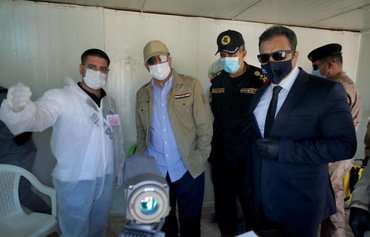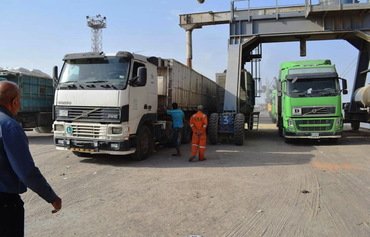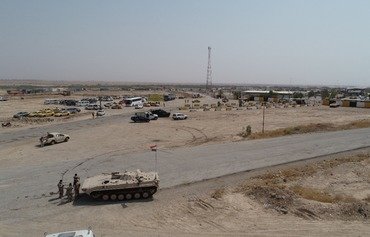The Iraqi government announced this week it will close unofficial border crossings in an effort to fight smuggling activity by pro-Iranian militias and other smugglers, and to cut off their sources of funding.
Prime Minister Mustafa Kadhemi on Monday (November 16th) instructed the heads of the army and Border Guard to close all illegal crossings to prevent the entry of smuggled goods and protect national products, according to a government statement.
Two days later, the Joint Operations Command said it has prepared a "consultative plan with a number of relevant ministries to begin closing any unauthorised crossings".
Kadhemi has agreed to reinforce the Border Ports Authority with personnel from the National Intelligence Service, the authority said in a statement.
While there is no data on the exact number of illegal crossings dotting Iraq's borders, they are generally concentrated on the border strip with Iran and Syria.
The government's new move comes about four months after it decided to crack down on the militias and curb their influence and interests at official border crossings.
The Iraqi army as a result has been able to tighten its control over 11 official border ports with neighbouring countries, mostly with Iran, in addition to four seaports.
Meanwhile, Iraq and Saudi Arabia on Wednesday reopened their land border for the first time in 30 years, with closer trade ties between the two countries irking allies of Tehran in Iraq, AFP reported.
Baghdad sees the Arar crossing as a potential alternative to its crossings with Iran, through which Iraq brings in a large share of its imports.
Depriving militias of funding sources
The government's move, while belated, is an important step that will help control the borders and deprive Iran-backed militias and smuggling groups of funding sources that bring them huge financial returns, an economist who wished to remain anonymous told Diyaruna Friday.
The government's measures will help curb the entry of drugs, weapons and prohibited materials into Iraq, as well as goods that do not conform to standard specifications and threaten the health and safety of citizens, he said.
Monitoring the borders and illegal passageways is a move that will promote the protection of national resources such as antiquities, oil products and livestock from being smuggled outside the country, the expert said.
It will also protect national products and industries from competition with goods smuggled into the local market, and maximise state income from official ports, which were strongly dominated by Iran's agents prior to the government's last campaign, he added.
These militias cost Iraq billions of dollars in losses every year as a result of their illegal activities inside those ports, including not paying customs tariffs or taxes, and manipulating the classification of industrial products and registering them as foodstuffs in order to get duty and tax exemptions, he said.

![In its meeting on November 16th, the Iraqi government directed Iraqi forces to close any unofficial border crossings to curb the militias' smuggling activities. [Photo courtesy of the Iraqi prime minister's office]](/cnmi_di/images/2020/11/20/27154-iraq-border-crossings-600_384.jpg)






